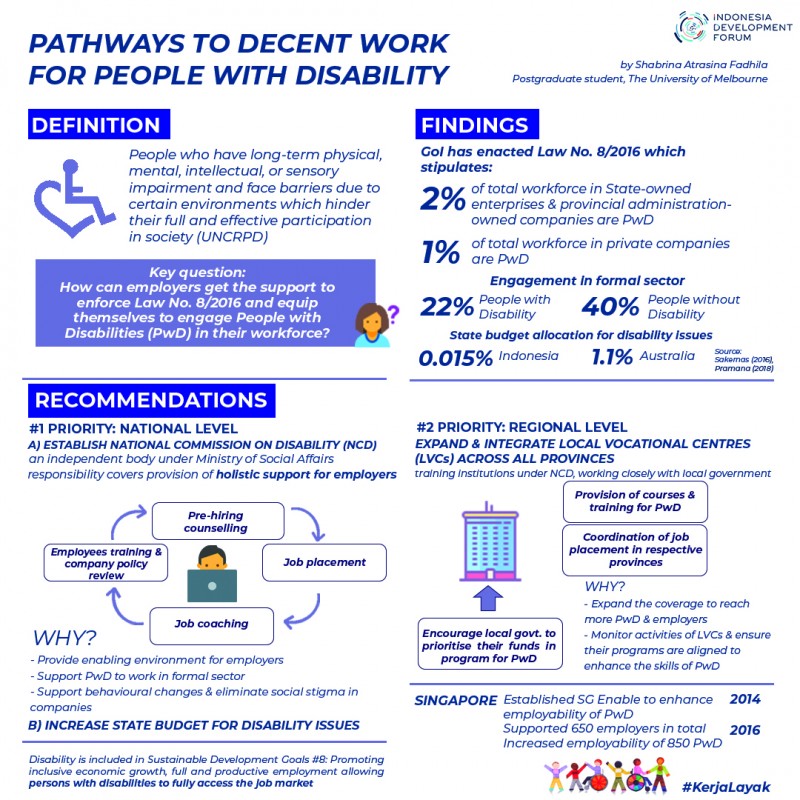
-

Shabrina Atrasina Fadhila
Postgraduate student at The University of Melbourne, majoring in Development Studies. Passionate in taking concrete actions to make an inclusive development for all a reality.
Pathways to Decent Work for People with Disability
2019Disability issue may be invisible to some, if not most, people in Indonesia. Nevertheless, it touches the lives of at least 10 million people, or 4.3% of total population (Cameron & Suarez 2017). They have been facing barriers in social environment, from limited access to education, and to decent work. Up to 75% of People with Disability (PwD) work in informal sector (as unpaid family workers, casual workers, and own account employers), compared with 60% of people without disability (Sakernas 2016). This condition reflects that PwD have fewer opportunities and face considerable obstacles in accessing formal employment. The Government of Indonesia (GoI) has enacted Law No. 8/2016 which stipulates minimum percentage of PwD to be engaged in state-owned enterprises and private companies. Nevertheless, many employers still face barriers in hiring PwD, and thus reluctant to enforce this law. Therefore, a transformative approach to provide an enabling environment for employers to engage PwD in their workforce is required.
At national level, the initiation of National Commission on Disability whose responsibility covers among others, provision of holistic support for employers from pre- and post-hiring, can provide technical support and advice for employers to make their working environment suitable for PwD. In order to support this initiative, the current state budget for disability-related issues needs to be increased. At regional level, by working together with local government, expansion of Local Vocational Centres can reach more PwD across Indonesia and help to increase their skills and knowledge. Although enforcing law can make a difference, additional resources should be provided by the GoI to expedite its implementation. Together, it is time to make an inclusive development for all citizens a reality.
